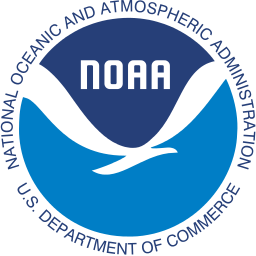2021 Local Solutions: Climate Preparedness Communities of Practice
Thank you to all of the participants in our 2021 Virtual Local Solutions: Climate Preparedness Community of Practice.
Please see the agenda for links to materials and documents from the convening.
AUNE, in partnership with NOAA and the Island Institute presented the
2021 Virtual Local Solutions: Climate Preparedness Communities of Practice
This facilitated community of practice (FCoP) started on March 16th, 2021 with our Keynote Speaker, Victoria Hermann and continued meeting 1-2 times a week until the final convening on May 6, 2021. Participants explored how to ensure the following community topics are equitable and climate resilient: Affordable and Accessible Housing, Sustainable Transportation and Mobility, Healthy Neighborhoods, Healthy People, and Strong Local Economy and Green Workforce Development.
What is a Community of Practice
Communities of Practice are groups of people that share a concern, a set of problems, or a passion about a topic, and who deepen their knowledge and expertise in these areas by interacting on an ongoing practice (Wegner et al, 2002). It is based on the assumption that learning is a social process versus a passive transfer of knowledge between expert and participant. This type of learning relies on a two-way direction of learning and knowledge.
In order to implement equitable climate resilience, we need to work collaboratively to identify leverage points for transformational change. The community of practice model is based on cultivating relationships and social learning to support this type of change.
Participants:
- Developed a fundamental understanding of how to intentionally apply an equity lens on climate resilience work. Participants returned to their communities with a deeper understanding and ability to facilitate inclusion of marginalized populations in their community
- Identified and compiled best practices to address commonly experienced challenges from the impacts of climate change through sharing, learning, and relationship building to enable action.
- Emerged from the community of practice with clarity in how to take the next planning/ implementation steps for building resilience, not only in your own community, but in partnership with others in your region.
- Introduced a discussion among the participants for how this community of practice can be continued among those with similar challenges in addressing a climate resilient response in the areas of housing, transportation, local economy and public health.
Everyone at the table had access to exceptional speakers and workshop leaders that they’ve come to expect, only this time content is adapted to our new FCOP format. This format was intentionally designed to empower participants with a regional roadmap that will guide actionable steps that center equity in local and regional climate decision making.
The format began with a large group keynote on climate migration in the northeast, followed by several modules within designated sub-topics. These groups met over the course of several weeks and then reconvened as a full group to share findings and participate in a panel discussion on financing.
FCOP Focus Topics:
Affordable and Accessible Housing
How can housing, including affordable housing, be made more resilient to extreme weather and better prepared for the consequences of climate change? This FCOP will highlight best practices and lessons learned on implementing climate resilience in affordable and accessible housing.
Sustainable Transportation and Mobility
Transportation is integral to the prosperity of all communities and highly influential on where people live, work, and spend their free time. A sustainable resilient transportation system allows for mobility despite climate impacts. This type of system also provides multiple options that are accessible to all levels of income, seniors, children and disabled populations.
Healthy Neighborhoods and Healthy People
The overall health of a community is a key role when planning for a healthy, resilient, and sustainable community. Resilient neighborhoods and individuals are both physically and psychologically healthy. Good health prior to disasters supports greater resilience in the disaster setting. This FCOP will highlight best practices and lessons learned on implementing climate resilience for public health impacts.
Strong Local Economy and Workforce Development
Climate impacts will add to the economic challenged many communities already face. Having a climate-resilient economy is essential to a community’s well-being. This FCOP will highlight best practices and lessons learned on implementing climate resilience in your community’s local economy along with supporting a green workforce.
Who Should Attend?
Staff from local governments and regional planning councils, local elected and appointed officials, municipal committee members, and community-based organizations. In addition, organizations and service providers that support the target audience will need to be present.
What is an Equity Framework?
Excerpted From: Climate Action Through Equity report from Portland, Oregon and Multnomah County. This frame includes the following nine considerations in all discussions involving climate engagement strategies, planning and implementation. The frame is presented below in summarized form:
- Disproportionate impacts
Does the action generate burdens (including costs) to communities of color. low-income populations and other disadvantaged communities? - Shared benefits
Can the benefits of the action reduce historical or current disparities? - Accessibility
Are the benefits of the action broadly accessible to households and businesses throughout the community — particularly communities of color, low-income populations, and minority, women and emerging small businesses? - Engagement
Does the action engage and empower communities of color, low-income population and disadvantaged communities in a meaningful, authentic & culturally appropriate manner? - Capacity building
Does the action help build community capacity through funding, and expanded knowledge base or other resources? - Alignment and partnership
Does the action align with and support existing communities of color and low-income population priorities, creating an opportunity to leverage resources and build collaborative partnerships? - Relationship building
Does the action help foster the building of effective, long-term relationships and trust between diverse communities and local government? - Economic opportunity and staff diversity
Does the proposed action support communities of color and low- income populations through workforce development, contracting opportunities or the increased diversity of city and county staff? - Accountability
Does the action have accountability mechanisms to ensure communities of color, low income populations, or other vulnerable communities will equitably benefit and not be disproportionately harmed?



